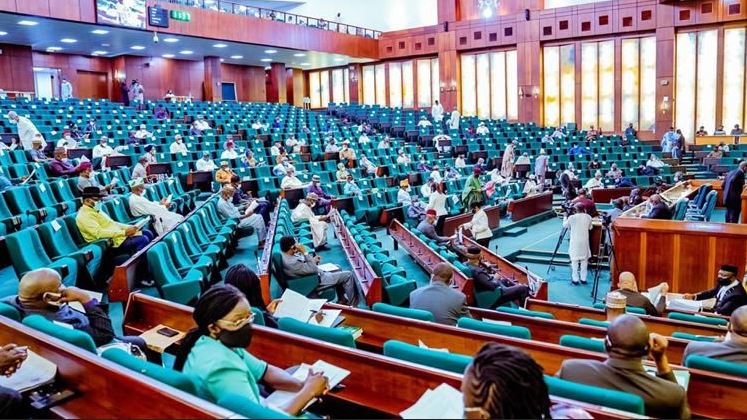Revealed: You Won't Believe How Much Nigeria Loses Every Year To Malaria
Posted by Samuel on Wed 27th Jul, 2022 - tori.ng
The House of Representatives has revealed that the country loses billions of naira to malaria yearly.
The PUNCH reports that the lawmakers decried that Nigeria was losing over $1 billion to the fight against malaria annually.
The parliament is also investigating the Federal Government’s National Malaria Elimination Programme for allegedly breaching the country’s local content policy and importing mosquito nets without approval.
At the plenary on Wednesday, the House unanimously adopted a motion jointly sponsored by three of its members, Benjamin Kalu, Yusuf Sununu and Abubakar Dahiru, titled ‘Call for Intervention in Nigeria’s Losses in the Fight against Malaria.’
In the motion, the lawmakers noted that Nigeria accounted for 27 per cent of malaria cases and 31 per cent of malaria deaths worldwide, with malaria killing no fewer than 200,000 Nigerians and afflicting 61 million others in 2021 alone.
“Despite efforts to contain malaria, Nigeria loses over $1bn yearly in the prevention and treatment of the disease as well as other costs,” they claimed.
According to the sponsors, Nigeria has, over the years, made notable progress in scaling up; and impact of malaria interventions as regards the utilisation of mosquito nets for children less than five years, has increased significantly, from 6 per cent to 49 per cent; and parasite prevalence reduced from 42 per cent in 2010 to 23 per cent in 2018.
The lawmakers state that the National Malaria Elimination Programme is the body responsible for formulating and facilitating policy and guidelines, coordinating the activities of partners and stakeholders on malaria control activities, providing technical support to states malaria programmes, local government areas and stakeholders, mobilising resources, monitoring and evaluating progress and outcomes in malaria elimination efforts across the country.
Moving the motion, Kalu said, “The House is concerned by a recent report from the Office of the Inspector-General of the Global Fund, indicating that NMEP has fallen from a B1 to B2 rating within six months, which undermines Nigeria’s shot at accessing future grants and partnerships in the fight to eliminate malaria.
“The House is also concerned that considering that Nigeria is one of the biggest beneficiaries of the Global Fund grant, with a value of $412 million, the country is at risk of losing the grant and other partnership opportunities as a result of poor absorption, poor performance and lack of domestic resource mobilisation.
“The House is further concerned that the poor performance by NMEP has caused the World Health Organisation to neglect Nigeria in favour of Ghana, Kenya and Malawi for the rollout of the RTS-Sj AS01 malaria vaccine. The House is mindful that with the onset of the rainy season, Nigeria is in dire need of malaria interventions.”
The sponsors recalled that the Federal Government, on December 2, 2020, inaugurated the National Steering Committee of the World Bank-supported Immunisation Plus and Malaria Progress by Accelerating Coverage and Transforming Services Project, which is a $30m project facility designed to fast track the government’s intervention in malaria to reduce under-five mortality in the Nigeria for 13 beneficiary states.
Kalu stated, “The House is worried that almost two years later, despite the preparedness of the World Bank and the Islamic Bank to disburse the funds, the IMPACT project is yet to commence.
“The House is also worried that in the past year, non-approved mosquito nets have been procured and distributed in Nigeria without any rejection by the leadership of the National Malaria (Elimination) Programme despite a resolution by the House of Representatives calling for the prioritisation of local content in the procurement of malaria commodities.
“The House is disturbed that if nothing is done to address the underperformance of NMEP and improve the quality of malaria interventions in Nigeria, the country will continue to lose huge sums annually as well as thousands of lives.”
Adopting the motion, the House urged the Federal Ministry of Health, the National Malaria Elimination Programme and other relevant Ministries, Departments and Agencies to “comply with the resolution to prioritise local content when procuring malaria commodities using funds from the IMPACT projects facility.”
The lawmakers also resolved to “invite the leadership of the National Malaria Elimination Programme to explain why defective mosquito nets are still being procured, imported and distrusted in Nigeria, against the World Health Organisation’s standards and local content directives from the House.”
Also, the House mandated its Committees on HIV/AIDS, Tuberculosis and Malaria Control; Healthcare Services and Health Institutions to “investigate the late/non-disbursement of the IMPACT project funds, the alleged underperformance and down rating of the National Malaria Elimination Programme by the Office of the Inspector-General of the Global Fund and the procurement and distribution of non-approved mosquito nets across the country.”
The joint committee is to report back within six weeks for further legislative action.



















































